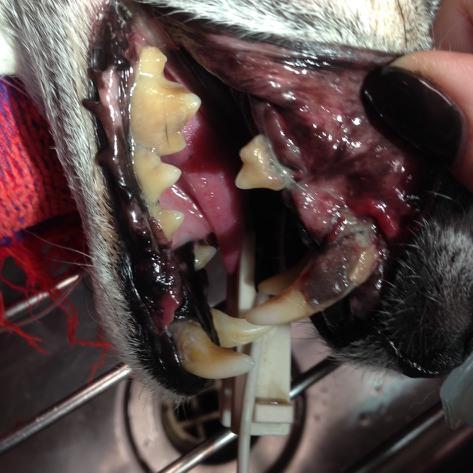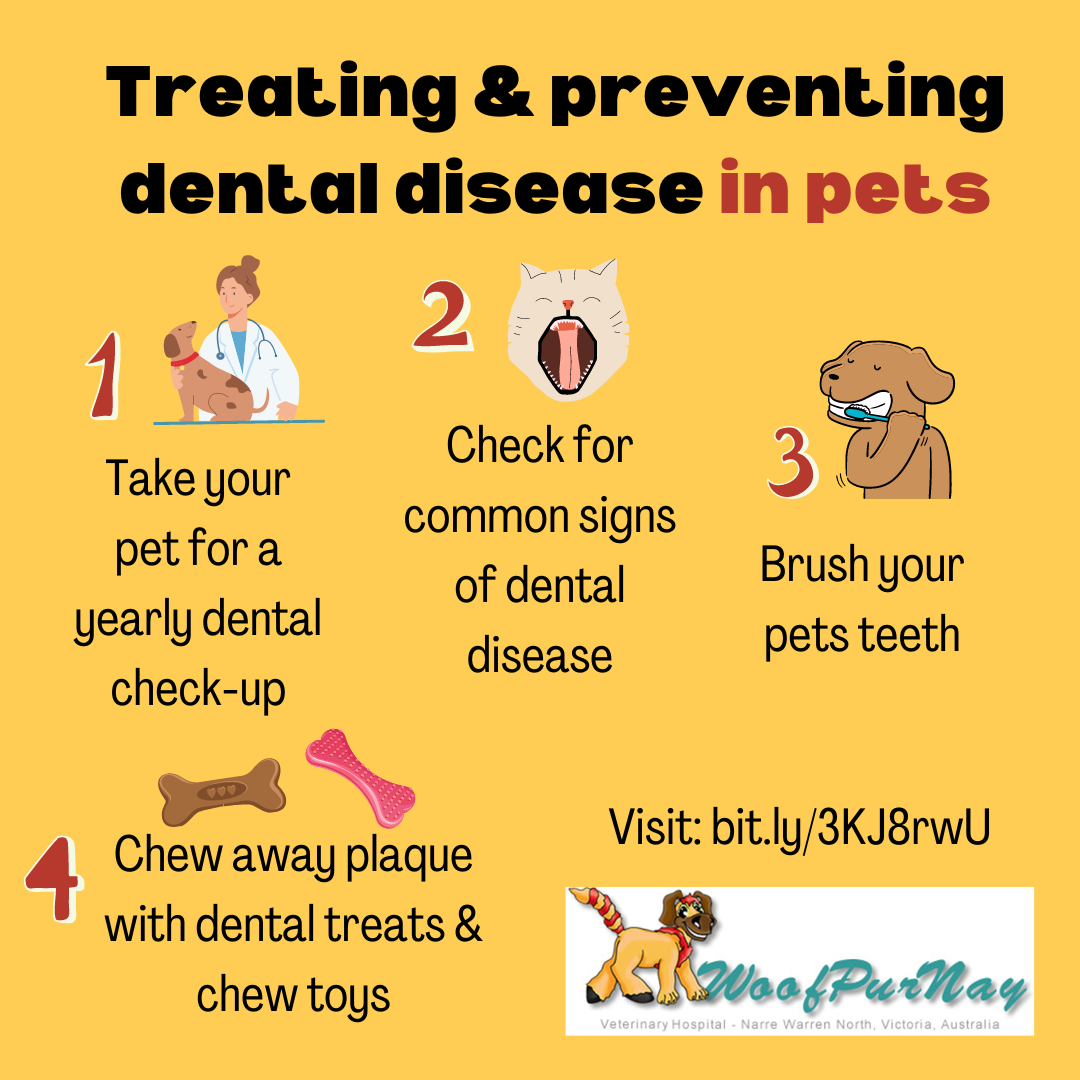8 Common Signs of Pet Dental Disease & How to Prevent It
August is “Pet Dental Health Month”. To celebrate we are going to spend the month talking about and promoting oral health for your furry loved ones. We hope you enjoy reading our articles and posts and importantly that your pets benefit from your care and attention to their ongoing oral health.
What is pet dental disease?
The health of your pet’s teeth and gums has a significant impact on their quality of life. Unfortunately dental disease is a common health problem for many dogs and cats with around 80% of dogs and 70% of cats suffering from some form of dental disease by the age of three.
Dental disease or periodontal disease is a bacterial infection of the structures around your pet’s teeth. It starts with a build up of bacteria that can cause plaque. Plaque is a sticky, colourless film that constantly forms on your pet’s teeth. If the plaque is not removed, it builds up and hardens, creating calculus (or more commonly known as tartar). This causes gum irritation and leads to an inflammatory condition called gingivitis, which is considered to be the early stages of periodontal disease. If left untreated, gingivitis can develop into periodontitis which can lead to pain, tooth loss and can also cause damage to vital organs such as the heart, liver and kidneys.
8 Common Signs of Dental Disease
Pets are very good at hiding pain and injury so many pet owners are not even aware that their pet has dental disease. Even pets with sore gums, infected mouths and broken teeth will continue to eat so owners may not notice any problems.
So how can you tell if your pet has dental disease? You can easily examine your pet’s mouth to search for some common signs:
Red, swollen or bleeding gums
Bad breath
Yellow or brown tartar build-up on teeth
Sore or sensitive mouth
Difficulty eating or reduced appetite
Drooling
Loose teeth or teeth loss
Pawing or rubbing mouth
If you notice any of these signs or have any concerns about your pet’s dental health, give us a call on 03 8784 4444.
Here are just a few examples of dogs that we have treated with dental disease. You can see red, swollen, bleeding gums and yellow/brown tartar build-up on the teeth.
Treatment and prevention
The good news is that dental disease can be prevented, treated and even reversed if discovered early. Working with our local vets, there are a number of ways you can take control of your pet’s oral health.
Take your pet for a dental check up at least once a year - our vets will not only check your pet’s oral health but will also discuss a preventative dental health care plan for the future. For adult dogs and cats with existing dental disease, a scale and polish from your veterinarian may also be required. This procedure is similar to what you would have experienced at your own dentist. To book a dental check call us on 03 8784 4444.
Check for common signs of dental disease - remember animals are good at hiding pain and illness so a monthly examination of their mouth could help identify any issues. If you notice any of these signs or if you have any concerns about your pet’s dental health, get in touch with us.
Brush your pet’s teeth – regular tooth brushing isn’t just for humans, it can be great for your pet’s too! Many dogs and cats can be trained to enjoy the experience, particularly if you start when they are young. Check out our pet care sheet on “How to brush your dogs teeth”.
Chew away the plaque – dental treats and chew toys are a great way to clean your pet’s teeth and have some fun at the same time. The right treats and toys are designed to scrape against your pets teeth as they chew, helping to reduce plaque and tarter build up. Talk to our friendly staff about the right dental treat or toy for your pet.
Regular attention to your pet’s teeth is the best way to prevent dental disease. If you are concerned your pet may have dental disease, contact us to make an appointment.




